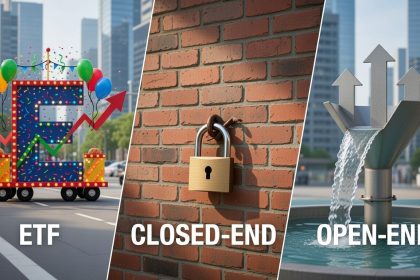If you’ve ever said to yourself, “I wish I had started sooner,” or “It’s too late for me to fix my finances,” I want you to stop right there. It’s not too late. You are not too old, and you are absolutely not behind. Your financial journey starts the moment you decide to take it seriously—and the good news? That moment can be today. Keep reading to learn the key financial lessons that transformed my finances!
When I look back on how far I’ve come with my finances—from getting out of credit card debt to saving over $100,000 and building long-term wealth—there are a few key financial lessons that truly transformed my financial life. Some were tough, some were surprising, and all of them are practical enough for anyone to implement.
And for the record, I hate financial complexity. These lessons are simple, actionable, and designed to help you make real progress.
That said, here are the 7 financial lessons that changed my life, and how they can change yours too.
1. Build systems, not just goals
When I first started getting serious about money, I had all the goals: save more, invest monthly, pay off debt. But goals without systems are just good intentions.
The turning point came when I realized that systems create consistency, not motivation. Motivation fades. Systems make success automatic. Here’s what worked for me:
These systems gave me structure and that structure helped me stay focused even when life got busy. If you want to build wealth, don’t just dream about it, create systems around it.
2. Be mindful of your circle of influence
Let’s be honest: the people around you influence your mindset more than you realize. In my early 20s, I had a group of friends who loved to spend. New shoes, new tech, lavish dinners—you name it. And while they were great people, their spending habits didn’t align with my goals.
Once I started surrounding myself with people who valued saving, budgeting, and building wealth, everything changed.
Here’s what I recommend:
- Take stock of who you spend time with and how they influence your money mindset
- Join an accountability group or community (like Clever Girl Finance!)
- Follow creators, podcasts, and books that reflect the financial life you want
Your circle matters. Choose people and content that push you forward, not pull you back.
3. Avoid lifestyle inflation when your income grows
When I started earning more, I automatically spent more, especially on luxury handbags. I felt like I “deserved” to treat myself with every raise. Enter, lifestyle inflation. But eventually, I realized not every raise needed to fund a new bag or designer item.
Now, when my income increases, I do two things:
- I increase my savings and investment rate
- I keep my lifestyle relatively stable
Yes, you can absolutely enjoy your money, but do it intentionally. Financial freedom will always be worth more than any flashy purchases.
4. Delay gratification and learn to wait
Impulse spending used to be one of my biggest money leaks. I’d see something cute online or spot a great deal in-store and think, “Why not? I’ve had a long week, I deserve it.” But over time, those “why not” moments added up to hundreds, even thousands of dollars spent on things I didn’t really need or use.
The solution? Learning to pause. Now, I follow a simple rule: wait 48 hours (or even 7 days) before buying anything that isn’t a true necessity. I also use a wishlist system:
- I add items to a note or list instead of buying right away
- I revisit the list weekly to see if I still really want them
- Most of the time, I don’t end up buying the item.
This pause gives me space to think, compare prices, and prioritize what truly matters. Delaying gratification is one of the most underrated tools for building wealth.
5. Max out your retirement contributions early if you can
When I landed my first job, I didn’t even know what a 401(k) was. But I learned quickly, especially when I found out my employer offered a match (free money!).
I started small, contributing just enough to get the match. But if I could go back, I would have maxed it out earlier. Why? Because time is your biggest asset. If you’re just starting out:
Early contributions + compound interest = massive long-term gains.
6. Learn about investing and start early
After saving over $100,000, I let more than half of it sit in a low-interest savings account, for years. Why? Because I didn’t understand investing, and I was afraid of making a mistake.
That fear cost me time, and potential returns. Once I educated myself and got comfortable, I started investing, and I haven’t looked back.
What you should do:
- Learn the basics: index funds, ETFs, compound interest
- Don’t wait until you “have enough”, start with what you’ve got
- Stay consistent and focus on the long term
Investing is how your money starts working for you. It’s a critical part of any wealth-building plan.
7. Use credit cards responsibly
In college, I maxed out a credit card and couldn’t even tell you what I spent the money on. That 24.99% interest rate haunted me, and taught me a hard lesson about credit.
Now? I use credit cards as a tool, not a crutch. I only charge what I can pay off in full each month, and I use rewards and perks as bonuses, not motivators.
Here’s your credit plan:
Credit isn’t the enemy. Misuse is. Use credit wisely, and it can be one of your greatest financial assets.
Building wealth isn’t about perfection, it’s about consistent progress
You don’t have to get everything right from the start. What matters is that you commit to learning, apply what you know, and take small, intentional steps every day. That’s how you build a strong financial foundation and that’s been my own personal experience based on my financial lessons.
Frequently asked questions
Below are commonly asked questions I often get about my finnacial lessons learned.
What’s the most important financial lesson to start with in your opinion?
The most important place to start is by building simple financial systems that support your goals. Many people make the mistake of setting vague resolutions like “I want to save more” or “I need to stop overspending” without creating a clear, consistent plan to follow through.
Start by automating your savings, even if it’s just $25 per paycheck, and scheduling time each month to review your budget and progress. These systems build consistency, and consistency leads to real results over time.
Also, begin tracking your expenses so you understand exactly where your money is going. Awareness is the foundation for change.
How do I avoid lifestyle inflation?
Lifestyle inflation happens when your spending increases as your income rises. It often happens subtly—an upgraded car, more dinners out, a shopping splurge “just because.” While there’s nothing wrong with enjoying your money, the key is to increase your savings rate before your spending.
Here’s how to do it:
- Every time your income increases, immediately increase your automatic transfers to savings and investments.
- Set clear goals: instead of thinking, “I make more, I can afford more,” ask, “How can I use this raise to build more security or freedom?”
- Give yourself a reasonable “fun budget” so you still enjoy your money, but within limits that support your bigger goals.
Staying intentional about upgrades and reminding yourself of the life you’re building, debt freedom, early retirement, a fully funded emergency fund, helps you stay grounded.
Is it ever too late to start investing?
It is never too late to start investing. While starting earlier gives your money more time to grow through compound interest, the most important thing is to start as soon as possible, regardless of your age.
Whether you’re in your 30s, 40s, 50s, or even beyond, you can still make meaningful progress. There are even catch-up contribution allowances for retirement accounts once you reach age 50. Don’t let fear or regret hold you back.
Begin by understanding your options, starting small, and increasing your contributions as you learn and grow. Taking action now puts you in a stronger position tomorrow.
What’s the best way to start learning about investing?
The best way to learn about investing is to start with the basics and take it one step at a time. Many people think investing is complicated or only for experts, but that’s not true. You don’t need to understand the entire stock market to be successful.
Focus on foundational concepts like compound interest, diversification, index funds, and ETFs. Look for beginner-friendly resources like books (check out Grow Your Money), podcasts, and free online courses.
Once you have a basic understanding, consider opening an account and starting with a small amount, just to get comfortable. Experience is a powerful teacher, and even small steps can build your confidence and knowledge over time.
Should I use credit cards for rewards?
Credit cards can be useful tools for earning rewards and building credit, but only if you’re using them responsibly. If you carry a balance month to month, the interest you pay can quickly outweigh any perks you earn. The best approach is to only charge what you know you can pay off in full each month. Set up autopay to avoid late fees, and don’t let points or cashback tempt you into spending more than you need to.
Choose a card that aligns with your actual spending habits, like groceries or travel, and view any rewards as a bonus, not a goal. If you’re currently working to pay off credit card debt, focus on that first before trying to maximize rewards.
Related content
If you enjoyed this article, check out this related content:
Leverage my financial lessons for your own success!
These seven financial lessons didn’t just change how I manage money, they changed my entire financial life.
And here’s the truth: you don’t need to master them all today. Start with one. Build a habit. Learn something new. Apply it to your situation. Then keep going.
Financial success isn’t about being perfect, it’s about staying consistent, learning from your mistakes, and choosing progress over procrastination.
Your journey starts now. Which lesson will you apply today?
Read the full article here















